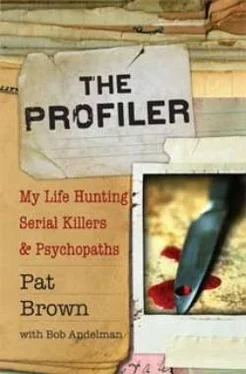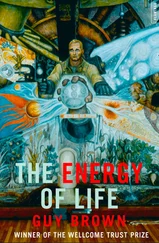The detective liked the idea.
The prosecutor didn’t.
And nothing was ever done.
CHAPTER 9.MISSY:A CHILD’S NIGHTMARE
The Crime: Sexual assault, homicide
The Victim: Missy Jones
Location: Southwestern United States
Original Theory: Her father did it
As you’re driving into this small town in the Southwest, there are signs on the side of the road that say warning: hitchhikers may be escaping prisoners.
The town has only two industries: a prison and a mental institution. You either work at one or the other. And then there was the sheriff’s department, which put you either in the prison or the mental institution. It’s a pretty scary place.
The sheriff’s department did an excellent job of investigating Missy Jones’s murder, and they had the forensics, photos, and notes to prove it. They wanted my take, and if I came to the same conclusion, they wanted me to encourage the family to finally cooperate with the investigation. They wanted me to convince the family that Missy’s own daddy killed her.
Missy’s mom was incensed.
“The sheriff is crazy!” she insisted. “What father would rape and murder his own daughter?”
But by the time I finished profiling the crime and researching the background of Missy’s dad, Orville, they had come around and their anger wasn’t targeted at the sheriff’s department anymore. As we sat in a circle on the front lawn of the trailer home, Missy’s uncle spoke on behalf of the family.
“Hell, yeah, we’ll cooperate,” he said. “We’re ready to put a bullet in the bastard’s head ourselves.”
MISSY DIED ON April 25, 1992. The Jones family brought me into this case about nine years later.
They were upset because the police had focused on Missy’s father as the prime suspect. The family could not believe that her own father would do something like that to her when there were better choices out there:
Tommy Hime, the twenty-eight-year-old man down the street who befriended twelve-year-old Missy and was close to another teenage girl who disappeared six weeks after she had a baby and was never found;
Ron Lewis, who was at the house Missy visited that night. He grew pot and later escaped from a chain gang.
But Orville? Why would the sheriff be looking at him but not be interested in Tommy or Ron?
Instead, the sheriff insisted the only suspect in Missy’s murder was Orville Jones, her biological father.
Orville, who was a self-employed carpenter, earned an associate’s degree in criminal justice while attending community college, so he considered himself quite the junior investigator. He was always giving information to the police as to who they should be looking at and how the man down the street, Tommy, was trying to be Missy’s boyfriend but he was a lot older than her. He also noted how, in the house she was visiting, the boy living there, Ron Lewis’s brother, tried to have his way with her once before. I found that amusing. And you, her father, let her go back there to play anyway?
Orville was full of stories; he had an answer for everything. Orville, in the long run, comes off as a classic psychopath who likes to run the whole show, and yet his demeanor following his daughter’s death shows a total lack of understanding of what’s appropriate and what’s inappropriate. Or how people will view you. Psychopaths are so busy manipulating people and trying to control the game in their own mind, they don’t realize how they come off.
IN ORLANDO, FLORIDA, a girl named Caylee Anthony made national headlines in June 2008 when she disappeared. The story grew disproportionately large primarily because her single mother, Casey Anthony, gave a ridiculous story as to how the babysitter kidnapped her daughter. Meanwhile Casey spent her nights partying in bars.
The public was shocked when, on July 15, the press reported that Caylee’s grandparents-who couldn’t get a straight answer for weeks from Casey about her daughter’s whereabouts-picked up Casey’s car from a towing lot and were revolted by the smell emanating from the trunk.
“There’s something wrong,” Cindy Anthony said in an emergency call to 911. “I found my daughter’s car today and it smelled like there’s been a dead body in the damn car.” Later, apparently to protect her daughter, Cindy claimed the smell came from pizza that Casey had left in the trunk.
That seemed to parallel what happened in Missy Jones’s case sixteen years earlier.
There was definitely a nasty smell coming from the old sedan that Orville drove. It was something the police honed in on, investigating whether Missy had once been in the car trunk-and just as we later saw in the case of Caylee Anthony, her decomposing body was relocated to a wooded area after a period of time, leaving a smell far worse than rotting pizza.
We often wonder why people bother to put bodies in trunks, but the simple fact is they are convenient, enclosed locations you can lock and keep people from opening. They are also usefully attached to a motor vehicle that allows you to then transport a corpse out of sight of prying eyes. But trunks also keep a lot of good evidence, as well, so unless a killer really does a good job of making sure nothing escapes from the body into the trunk-a really good double or triple Hefty bag wrap for starters that keeps bodily fluids and gases contained-eagle-eyed investigators and the forensics team should easily detect clues there.
Investigators used the latest gas technology in the Caylee Anthony case, which they did not have available in the Missy Jones case.
Missy was missing for two weeks before the body was found. The family brought me in nine years later because, while the police suspected Missy’s dad, the family refused to buy into that theory. They were sure that somebody else killed her, but the time line in this case did not support that. Who was available to be involved in the crime? What things made sense in the time line? Who had the ability to commit the crime?
ON THE NIGHT she disappeared, Missy’s mother, Miranda, drove her to Rhonda Lewis’s home around six p.m. to hang out and sleep over with her friend. Missy was excited about a family trip planned for the next day. She was going to go home in the morning, pack, and take off with her parents and brothers.
Orville and his wife, Miranda, went out drinking that night, came home, and went to sleep.
At some point in the night, the phone rang twice. The first time Miranda heard the phone ring, she was in the shower. Miranda said Orville answered it and told her it was Missy wanting to come home. Miranda told him to tell her to wait until breakfast time.
Miranda thought the phone rang again. She recalled Orville telling her it was a hang-up. She didn’t remember anything more. The liquor knocked her out and all she remembered was waking up when the sun was already shining in the window.
Over at the Lewises’ house, Missy was watching television when Mrs. Lewis came down around 2:20 a.m. and said, “What are you doing down here?”
“I have a stomachache,” Missy said. “I’m going to go home. I already called home and asked them to come get me.”
“Okay,” Mrs. Lewis said, “but turn the television off, because we don’t watch television at this time of night.”
Missy, who was fully clothed, did as she was told and Mrs. Lewis went back to bed. When she woke up the next morning, Missy was gone. The Lewis family assumed Missy went home with whomever came to get her.
They assumed incorrectly.
“Between eight and nine a.m., I made a call to my sister’s house and decided not to make the trip,” Miranda Jones said. “Orville began to make coffee and fix breakfast. It was Sunday morning and no one was in a hurry. About ten a.m., Missy still hadn’t come home. I sent my youngest son over to Rhonda’s to tell Missy to come home. He came back saying she wasn’t there. I then went over to talk to Rhonda’s mother, Eva Lewis. Eva said that Missy was up in the living room sometime around two a.m., saying she wanted to go home, she was going to call her mother. Rhonda’s house was only about 150 yards through the small wooded area between [our] two houses. I think Eva stated that Missy was complaining about a stomachache. I never received a call or saw Missy that night.” (Miranda changed her story here about the phone call most likely because she didn’t want to admit she didn’t go get her daughter or that her husband actually might have.)
Читать дальше












